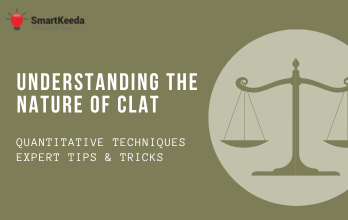
As you know Institute of Banking Personnel Selection (IBPS) is the recruitment body that conducts the major banking and Insurance examinations in India. Every year on average 15000+ candidates make it to the final list and make a good career choice. The major banking exams conducted by IBPS every year include RRB PO, IBPS PO, SBI PO, RBI Grade B for Officer Cadre and RRB Clerk, IBPS Clerk, SBI Clerk, and RBI Assistant for Clerical Cadre. Apart from this, there are vacancies for Specialist Officers (SO) as well.
There are majorly 3 phases in banking exams: Prelims Examination, Mains Examination, and Interview for Officer Cadre, and in clerical Cadre there is no Interview. Both Prelims and Mains Examinations are conducted online. You must clear Prelims to sit for mains. Usually, there are 3 sections in Prelims: English Language, Quantitative Aptitude, and Reasoning Ability except for RRB in which there are only 2 sections Quantitative Aptitude and Reasoning Ability. In the Mains Examination there are usually 4 sections: English Language, Quantitative Aptitude, Reasoning Ability, and Current Affairs. In RRB’s mains, there is an additional section of Computer.
Now that you have understood the overview let us discuss how to proceed further to clear banking exams and get a desirable job. In this strategy, I am going to share the proper resources and study Material to follow which will help clear banking examinations in minimum time.
Mastering the Basics
The first and foremost thing should be to clear the basics of all the sections like English Language, Quantitative Aptitude and Reasoning Ability. Download the syllabus from Google of all the sections and take an overview of it. The syllabus plays a very important role in every exam. Start completing the syllabus honestly and set small targets daily. Make a habit of completing those targets daily. Let me share section-wise strategy.English Language: This is the easiest section as compared to all. Do not treat it as a subject, it is a language and requires understanding. For English, there is a 45–45–45-minute rule which if followed properly can-do wonders and get you a very good score. You should start with 45 minutes of reading followed by 45 Minutes of listening and then 45 Minutes of Writing. Do this exercise daily and after a month or two you will feel the change. Another thing you should do is to start taking quizzes daily for English. You will find quizzes on many websites online. Smartkeeda has very good free quizzes on the website you can check them out as well. This will be more than enough for prelims as well as mains and you will get a very good score if you are honest with yourself daily.
Quantitative Aptitude: I do not know why students are scared of this section. Quantitative Aptitude is based on the 3 C’s which are: Calculations, Concepts, and continuity. Start with making your calculations strong by learning Squares (till 40), Cubes (till 20), Percentages to fractions, and vice versa. Learn tricks for finding squares and square roots, cubes, and cube roots fast. For this, you can refer to YouTube. Now start with learning simplifications, Quadratic equations, and Number series, and make a habit of solving 20 questions each day. After this, you are good to go for Arithmetic and Data Interpretations (DI).
There is an order for Arithmetic chapters, and you should do the Arithmetic in this order only because all the chapters are interconnected with one another. Order is:
- Averages
- Mixture and Allegations
- Ratio and Proportion
- Percentages
- Profit and Loss
- Simple and Compound Interest
- Time and Work
- Time, Speed and Distance
- Mensuration
- Permutations and Combinations
- Probability
The first 4 chapters will be the base. After doing them, start with Prelims Data Interpretations. Prelims DIs are based on these chapters only. Learn to extract data from a Data Interpretation first. You can get help from YouTube. Now start with other chapters. Give 5–7 days for a chapter and learn every concept mentioned in the book. You can follow 1 of the 2 very good books RS Agarwal or Quantum CAT by Sarvesh K Verma. Do not define a question as prelims or Mains level. The preparation for prelims and mains should be combined. After completing the syllabus, start with Mains Data Interpretations. For Mains Data Interpretations also first learn how to extract data and then practice on your own. Start taking quizzes daily of Prelims as well as Mains. Quizzes will help you increase your speed.
Reasoning Ability: Reasoning is bifurcated into 3 parts Puzzles and seating Arrangements + Miscellaneous topics + Critical Reasoning. Start with Miscellaneous topics by looking at the syllabus. Do not skip any topic. You can learn every topic from YouTube. After completing the Miscellaneous topics make a habit of doing at least 20 questions on each topic. Now start with seating arrangements and puzzles. Start with basic puzzles and learn the techniques from YouTube. Complete all the types of puzzles and seating arrangements like.
Seating Arrangements:
- Linear arrangements
- Circular arrangements
- Square arrangements
- Triangular arrangements
- Certain number of persons
- Parallel arrangements
Puzzles:
- Box Based
- Floor Based
- Designation Based
- Month Based
- Year Based
Building a Study Schedule
Selecting the Right Study Materials
In this digital age, we have plenty of resources. You should know which book to read and which teacher to follow. The things I have mentioned above are more than enough. Do not fall into the trap of following 10 books for a subject. Instead of that follow 1 book and read it 10 times. Trust me, every standard book is sufficient, but you should have patience and trust the process.Effective Time Management Techniques
As I have mentioned earlier you need time management in every stage of this exam. Make your study routine. Do not copy someone else. If you are comfortable studying at nighttime do that, if you are an early bird that is also perfect. Try to make a continuity in your schedule. Take a break of 15–20 minutes after every 2–3 hours of your study.Staying Motivated and Managing Stress
In competitive examinations staying motivated is very important. Motivation should be internal. Do not try to seek motivation from some motivational speakers or any other thing. Keep in mind that why you have started preparing for this exam, you will feel motivated on your own. Along with motivation, managing stress is also very important. If you get low marks in a mock test do not feel demotivated, it happens to everyone. Take it as a motivation and keep doing what you are doing.
Joining Study Groups and Forums
Nowadays there are many study groups on telegram, you can join these study groups to solve your doubts. There are other students also who are preparing for banking exams. But do not make it an addiction to be online every time. Beware of unwanted and unrelated chats. Post your question in these study groups only if you are in a very serious doubt .
Author : Shashi Garg
Hey, I am Shashi Garg, an aspiring writer, and a Passionate Wordsmith. I Prepared for banking exams for 1-1.5 years and also cleared some. I have been writing for a while now on a popular platform Quora. I feel excited about it because it allows me to share my opinions and experiences with the world. Every piece of information I shared in this post is based on my experiences.
FAQ’s
If you are preparing for banking exams it is up to you. If you want to do clerical job, you can take exams like SBI clerk, IBPS Clerk, and RRB Clerk. If you want to be an Officer you can give SBI PO, IBPS PO, and RRB PO.
First clear your basics then start giving online quizzes and mocks. Make a to do list or daily target and complete it before sleep.
What are the essential study materials for bank exams?
No, it is not necessary to join a coaching institute for bank exam preparation?
Common challenges for bank exams are covering the syllabus and making a good study schedule.
Yes, mock tests and practice papers are essential for bank exam preparation





